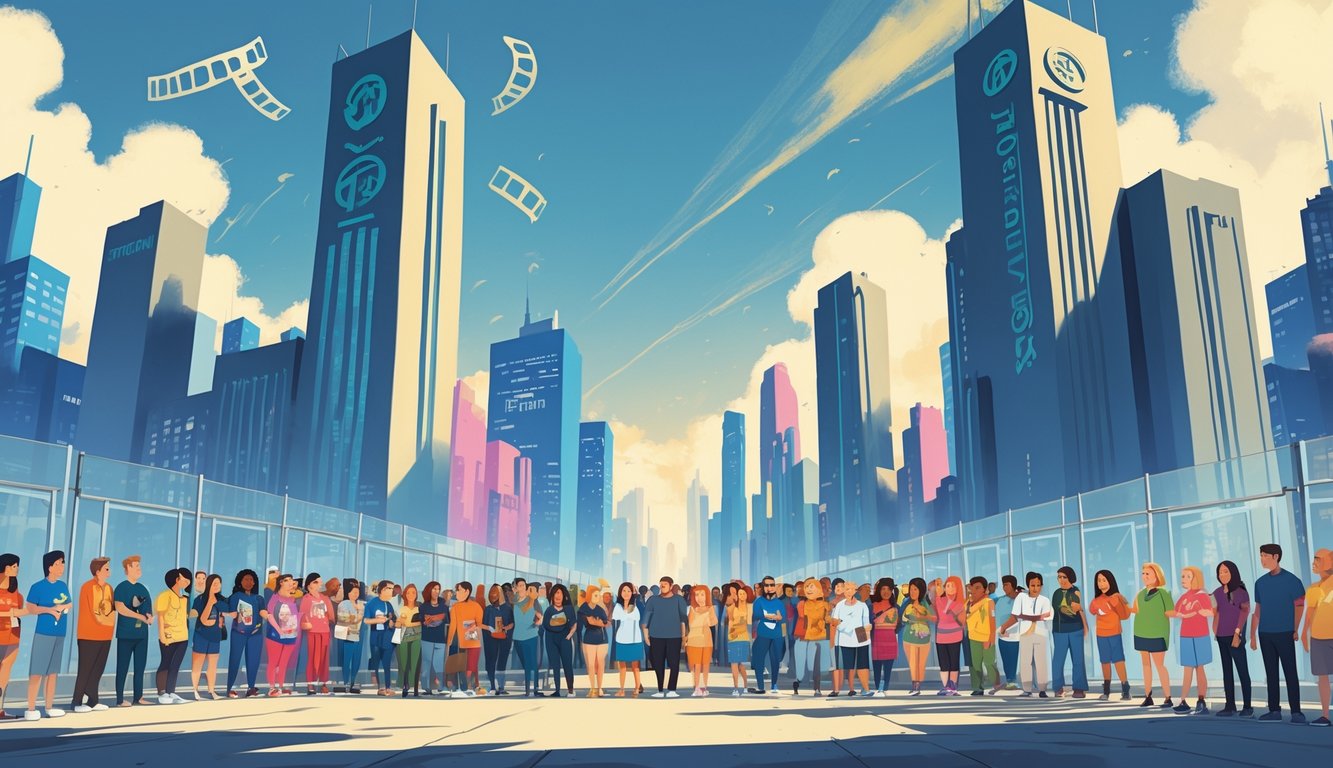
Long-Term Implications For Content Availability
I open my streaming apps looking for old shows—nope, gone again. Licensing deals scatter content everywhere, and half the time even the platforms look confused.
Potential Changes In Distribution Models
Every time I blink, another “exclusive rights” deal pops up, and suddenly my favorite show is on some service I’ve never used. An industry exec told Variety that all these shifting rights just force us into the same old “channel flipping,” but now it’s endless app hopping. Is that really better? I don’t get it.
Some shows do this weird double-dip—briefly on two platforms, then gone. Sony’s deal with Netflix and Disney (Sony Pictures licensing, 2022-2026) made everyone guess where Spider-Man would land. Hope your spreadsheet skills are sharp if you want to rewatch anything from your childhood.
And those “Pay-One” and “Pay-Two” terms? Studio reps love tossing them around. I barely get what they mean, and honestly, I don’t care—I just want to watch sitcoms without jumping through hoops. It’s like pop-up stores, but for TV.
What The Future Holds For Streaming Choices
I still haven’t figured out how many subscriptions I actually need. Harry Potter’s getting a 2026 streaming debut (The Hollywood Reporter, 2025), DC movies are talking decade-long exclusives—great, another thing to track. Feels like a gym membership I’ll never use.
Platforms keep layering in bundles, mixing and removing shows whenever they feel like it. My friend’s “comfort show” left Hulu for Paramount+, then randomly showed up on Netflix, then vanished again. Who’s enjoying this? Not me.
“Exclusive window” policies are only getting worse. My programmer friend’s tool says there’s been a ~30% jump in platform-only releases since 2023. Even when analysts say “just track your favorites on justwatch.com,” it feels like giving up. Sometimes I wish I still had my old DVDs. Scratches and all.
Case Studies Of Notable Licensing Moves
Trying to untangle streaming’s licensing mess is like chasing lost AirPods—frustrating, pointless, and somehow always your fault. Real deals, real headaches. It’s not just business: it’s why you can’t watch your favorite episodes, why fanbases get walled off, why nobody can explain what’s going on.
High-Profile Series Pulled Or Restricted
Remember when “Friends” and “The Office” just vanished overnight? I got panicked texts: “Where’s Season 4?” Warner Bros. Discovery shoved “Friends” onto Max, expecting everyone to follow. Parrot Analytics tries to model churn, but honestly, you don’t need fancy data to feel the loss when your playlist’s gutted.
Netflix locked down “The Office” in certain regions until rival bids started flying. NBC’s own show, yanked and then dropped onto Peacock. Studio execs say “long-term ROI outweighs short-term loss,” but ask anyone trying to queue up a Dwight episode. People find workarounds, or yeah, piracy. My cousin (corporate IP attorney, not that it matters) says the contracts basically turn whole franchises into hostages for quarterly targets. If you’ve ever hunted for a missing holiday special, you know exactly what I mean.
Fan-Led Movements Respond To Changes
So, when a show like “Community” suddenly disappears from your usual streaming spot, everyone just loses it. Not kidding—hashtags everywhere (#BringBackB99, anyone?), Google Docs popping up with sketchy episode links, and those relentless petitions that feel more like a group therapy session than activism. There’s this weird energy—like, I’ve actually seen people write physical letters to AMC execs when “Mad Men” started its whole short-term licensing stunt. Seriously, my friend’s got a spreadsheet tracking every time a show gets bounced across three different platforms in half a year. And yes, it’s a real spreadsheet, not just a rant. I’ve seen it. It’s kind of beautiful. Or maybe tragic.
You ever join a Discord just to find out where the heck Season 2, Episode 8 is streaming tonight? I have. It’s not nostalgia driving people—it’s pure survival mode. It’s like trying to hunt down oat milk at five different grocery stores because apparently, supply chains are allergic to consistency. And yeah, maybe only a tiny slice of fans ever actually succeed, but the noise adds up. Studio marketers? They’re watching. Tweets matter, oddly more than those heartfelt letters. Still, no one’s figured out a system that actually works for everyone. Maybe that’s the point. Or maybe nobody cares. Who knows?
Expert Insights On Studio Licensing Trends
Wading through another mind-numbing industry report—why do I do this to myself?—I keep tripping over the same thing: rights just whirling around like unclaimed bags at the airport, and fans left chasing after them. Disney, Warner Bros., Netflix—they keep swapping shows around, and one day your favorite series just vanishes, or it’s suddenly “exclusive” on some app you’ve never bothered to try. Good luck finding a map for any of it.
Industry Analysts Weigh In
Can’t escape the numbers even if I wanted to—Ampere Analysis ranks studios by “licensing power.” That’s apparently a thing. In the last few years, NBCUniversal, Disney, and WBD have tossed more than 300 titles between streaming platforms, sometimes letting two platforms share a show for a hot minute just to mess with the money flow (Parrot Analytics, 2024).
Vitrina.ai claims it’s got the “definitive guide” (sure, okay), and says buyers and sellers now have to dance around weird windowing periods, regional blackouts, and all these cross-platform stunts. At Licensing Expo 2025, someone—maybe a Paramount exec?—joked, “Fans are loyal, but contracts? Not so much.” I mean, they’re not wrong. Even if engagement spikes for a second, viewers chasing after a show are basically lost in a bureaucratic maze.
And here’s the thing: I haven’t seen a single model that actually predicts whether anyone stays loyal when studios lock things down. You’d think people would just follow their favorite show, but Parrot Analytics quietly hints that retention drops when shows get yanked mid-subscription. My dermatologist once compared it to switching sunscreen brands halfway through the summer—irritating, sometimes risky, and nobody’s happy. (Wait, was it mineral or chemical sunscreen? Whatever.)



